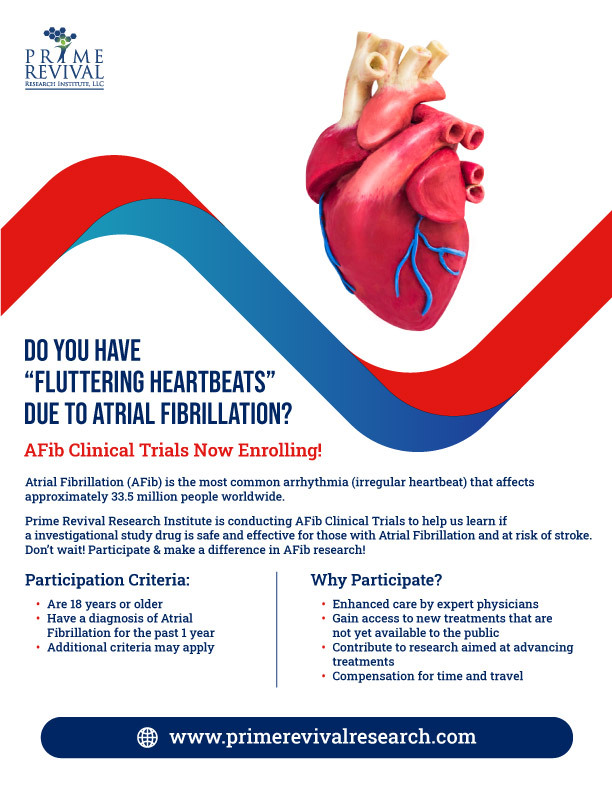Atrial Fibrillation Clinical Trials May Be An Option!
An estimated 33.5 million people suffer from Atrial Fibrillation (AFib), which leaves them at risk for one of its most dangerous complication—stroke. People with this condition are usually asymptomatic and AFib is usually casually detected during a routine medical check-up.
Currently, atrial fibrillation complications can be managed by taking anticoagulants. However, these medications come with their fair share of risks. Prime Revival Research Institute is conducting Atrial Fibrillation Clinical Trials investigating a potential study drug (an anticoagulant) that may be able to help.
To be eligible to participate in the Atrial Fibrillation Clinical Trials, participants must be:
- Over the age of 18 years old
- Diagnosed with Atrial Fibrillation for at least 12 months
*Additional criteria may apply.
The goal of phase 3, atrial fibrillation clinical trials is to investigate a novel potential atrial fibrillation treatment option that may be able to help reduce the risk of stroke for people with this condition.
*To participate, please fill out the form and someone from the study care coordination team will contact you. If you fit the eligibility criteria and would like to participate, please know that your participation is completely voluntary.
*No insurance is required to participate. Participants may receive compensation for their time and travel.


